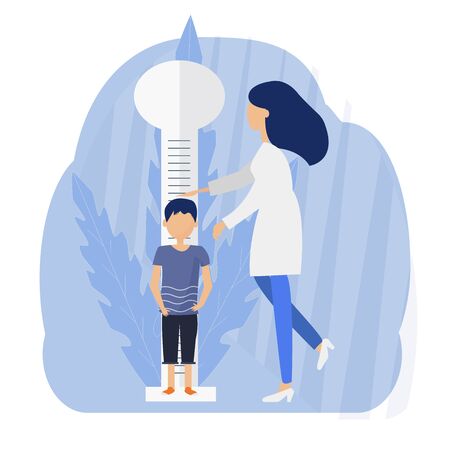Introduction to ABA Therapy in the Indian Context
Applied Behaviour Analysis (ABA) therapy has emerged as a highly effective intervention for children with autism worldwide, including in India. ABA focuses on understanding how behaviours work, how they are affected by the environment, and how learning takes place. In the Indian context, this approach is gaining traction among families and professionals who are seeking evidence-based methods to support children with autism. Understanding autism within Indian families and communities is crucial, as cultural values, family dynamics, and societal perceptions play a significant role in the acceptance and implementation of therapeutic interventions. As awareness about autism increases across urban and rural India, more parents are exploring ABA therapy as a structured way to enhance their child’s communication, social skills, and independence. Recognising the unique challenges faced by Indian families—such as stigma, lack of resources, and varied access to expert care—makes it essential to contextualise ABA for the Indian population. This introduction sets the stage for exploring how ABA can be tailored to fit the needs of Indian children with autism, highlighting its growing relevance in our diverse society.
Prevalence and Diagnosis of Autism in Indian Children
India, with its vast cultural diversity and demographic spread, presents unique challenges when it comes to identifying and diagnosing autism spectrum disorder (ASD) among children. The awareness and understanding of autism vary greatly between urban centres like Mumbai, Delhi, or Bangalore and rural regions across different states. This variance significantly impacts the effectiveness of interventions such as ABA behavioural therapy for Indian children.
Current Scenario of Autism Identification
In metropolitan cities, there has been a significant increase in awareness about autism over the last decade. Parents, educators, and healthcare professionals are more likely to recognise early signs of ASD, leading to earlier intervention and better outcomes for children. In contrast, rural areas often lack access to both information and diagnostic resources, resulting in late or missed diagnoses.
| Urban Areas | Rural Areas | |
|---|---|---|
| Awareness Level | High | Low to Moderate |
| Access to Diagnosis | Specialised clinics available | Limited facilities; often only primary health centres |
| Common Diagnostic Practices | Standardised tools (e.g., INCLEN Diagnostic Tool for ASD) | Observation-based, less standardised tools |
| Parental Involvement | Active participation in assessment and therapy planning | Lack of information; stigma may prevent seeking help |
| Intervention Initiation Age | 3-5 years (on average) | 5-8 years (on average) |
Challenges in Diagnosis Across India
The disparity in diagnosis is influenced by several factors:
- Cultural Beliefs: In some communities, developmental delays are attributed to fate or supernatural causes rather than medical conditions.
- Lack of Trained Professionals: There is a shortage of psychologists, speech therapists, and special educators trained in early identification of ASD.
- Linguistic Diversity: India’s linguistic variety makes it challenging to use standardised diagnostic tools across all regions.
- Social Stigma: Families may hesitate to seek help due to fear of social exclusion or misunderstanding within their community.
The Role of Awareness Campaigns and Policy Initiatives
The Government of India and various NGOs have launched awareness campaigns like the National Trust Act programmes and school-based screenings to bridge the urban-rural gap. These efforts aim to educate parents and teachers about early signs of autism and promote timely referrals to specialists. Increasing awareness and improving access to diagnostic services are crucial for maximising the benefits of ABA behavioural therapy among Indian children with autism.

3. ABA Therapy: Methods and Customisation for Indian Families
Applied Behaviour Analysis (ABA) therapy is a widely recognised approach for supporting children with autism. In India, the methods used in ABA are based on evidence-based practices, including positive reinforcement, discrete trial training, and task analysis. These techniques help children develop communication, social, and daily living skills by breaking tasks into smaller, manageable steps and rewarding progress.
Customising ABA for Indian Contexts
India’s diversity in culture, language, and socioeconomic status means that a one-size-fits-all approach to ABA therapy is not always effective. Customisation of ABA strategies is essential to ensure successful outcomes. For instance, therapists often incorporate local languages such as Hindi, Tamil, Telugu, or Bengali during sessions to make instructions clear and relatable for the child and their family. Additionally, familiar cultural references, traditional games, or stories may be used as motivators during therapy to increase engagement.
Family Involvement and Community Sensitivity
In many Indian families, grandparents and extended relatives play an active role in a child’s upbringing. ABA therapists collaborate with all family members involved to maintain consistency in behavioural strategies at home. Furthermore, therapists are sensitive to community norms—such as dietary restrictions or religious practices—while designing reinforcement systems or activities.
Addressing Socioeconomic Challenges
The socioeconomic spectrum in India ranges from affluent urban families to those in rural or low-income settings. Therapists adapt ABA techniques using locally available resources, making therapy more accessible and affordable. For example, instead of costly toys or materials, everyday household items may be used for skill-building exercises. Teletherapy options are also gaining popularity in India’s remote areas where access to trained professionals is limited.
This culturally informed adaptation of ABA ensures that therapy remains practical, relevant, and effective for Indian children with autism and their families across diverse backgrounds.
4. Effectiveness of ABA: Evidence from Indian Case Studies
Analysis of Research Findings
Recent years have witnessed a growing interest in evidence-based interventions for children with autism spectrum disorder (ASD) in India. Applied Behaviour Analysis (ABA) has been the focus of several Indian research studies, aiming to assess its effectiveness within the country’s unique socio-cultural context. Multiple studies conducted in urban centres like Mumbai, Bengaluru, and Delhi have shown marked improvements in social communication, adaptive behaviours, and reduction of challenging behaviours among Indian children who received consistent ABA therapy.
| Study Location | No. of Participants | Key Outcomes Observed | Duration of Intervention |
|---|---|---|---|
| Mumbai | 30 | Improved verbal skills, increased eye contact | 12 months |
| Bengaluru | 22 | Enhanced daily living skills, reduced tantrums | 9 months |
| Delhi NCR | 15 | Better classroom integration, improved peer interaction | 6 months |
Success Stories from Indian Families and Practitioners
Several parents and therapists across India have shared inspiring stories reflecting significant progress through ABA therapy. For example, a family from Hyderabad reported that their 5-year-old son, initially non-verbal and withdrawn, began using functional words and participating in group play after eight months of home-based ABA sessions. Similarly, practitioners at a Chennai special school observed that structured ABA routines helped children transition smoothly into mainstream educational settings.
Cultural Relevance in Success Cases
The success of ABA therapy often hinges on the involvement of family members and adaptation to Indian routines such as mealtimes, festivals, and extended family interactions. Therapists frequently integrate local languages—Hindi, Tamil, Telugu—into their teaching modules to ensure the child’s learning is contextually relevant and sustainable at home.
Challenges Faced in ABA Therapy Outcomes in India
- Lack of Trained Professionals: There is a shortage of Board Certified Behaviour Analysts (BCBAs) and trained ABA therapists across most Indian cities and towns.
- Cultural Stigma: Social stigma around mental health often delays diagnosis and intervention for children with ASD.
- Cost Barriers: Intensive ABA therapy can be financially demanding for many Indian families, as insurance coverage is limited.
- Diversity in Languages: Multilingual environments require therapists to adapt strategies for each child’s linguistic background.
- Sustaining Home Programs: Not all families can consistently implement home-based practices due to work schedules or lack of support.
Navigating Challenges: Indian Innovations
Despite these challenges, innovative community-driven models are emerging. Some NGOs and parent groups conduct group-based ABA sessions in local languages, making therapy more accessible. Online training modules for parents are also gaining traction, enabling them to reinforce behavioural techniques at home even if professional support is limited. These local adaptations demonstrate India’s resilience in ensuring better outcomes for children with autism through culturally responsive ABA therapy practices.
5. Challenges and Barriers to ABA Implementation in India
Societal Attitudes and Awareness
One of the most significant challenges to implementing Applied Behaviour Analysis (ABA) therapy for autism in Indian children is the prevailing societal attitude towards autism and developmental disorders. In many parts of India, there is still limited awareness about autism, often resulting in stigma, misconceptions, and social isolation for families. Acceptance of behavioural therapies like ABA can be low, as traditional approaches or home remedies are sometimes preferred. This lack of understanding makes it difficult for parents to seek timely and appropriate interventions, further delaying essential support for children on the autism spectrum.
Accessibility and Infrastructure
Accessibility is another major barrier to effective ABA delivery in India. Most specialized centres providing ABA therapy are located in metropolitan cities such as Mumbai, Delhi, Bengaluru, or Chennai. Families residing in smaller towns or rural areas face immense difficulties accessing these services due to distance, transportation issues, and lack of local resources. Furthermore, the cost of therapy can be prohibitive for many middle-class and lower-income households, as insurance coverage for behavioural interventions is still limited across the country.
Resource Limitations
The scarcity of qualified professionals trained in ABA is a pressing concern in India. While there has been growth in special education and psychology fields, certified Board Certified Behaviour Analysts (BCBAs) remain few and far between. This shortage leads to high caseloads for existing practitioners and may affect the quality and consistency of therapy provided to children. Additionally, educational institutions dedicated to training ABA professionals are only just emerging, making it challenging to build a robust workforce capable of meeting national demand.
Cultural Adaptation and Language Diversity
India’s linguistic diversity and rich cultural tapestry also present unique challenges for ABA implementation. Effective communication between therapists, children, and their families requires an understanding of regional languages and customs. Many available resources and training modules are based on Western models that may not always resonate with Indian cultural contexts. Adapting ABA strategies to align with local beliefs, family dynamics, and traditional caregiving practices is crucial for maximizing the therapy’s effectiveness.
Training Gaps and Professional Development
Another barrier relates to ongoing training and professional development opportunities for those working in the field. Few universities offer specialised courses or hands-on practicum in ABA within India, which limits exposure to evidence-based methodologies among educators and therapists. Continuous learning through workshops, conferences, or online certification programmes remains inaccessible to many due to language barriers, cost factors, or technological constraints.
Addressing these multifaceted challenges—by raising awareness at grassroots levels, improving access through government initiatives, expanding professional training programmes tailored to Indian needs, and fostering community involvement—will be vital for enhancing the reach and effectiveness of ABA behavioural therapy for autistic children across India.
6. Way Forward: Recommendations and Policy Implications
Enhancing ABA Accessibility Across India
The journey towards maximising the effectiveness of ABA behavioural therapy for Indian children with autism is ongoing. There is a strong need to address geographical and socio-economic barriers that hinder access, especially in rural and tier-2 cities. Implementing telehealth solutions, mobile ABA units, and regional training centres can bridge the gap between metropolitan advantages and rural needs.
Promoting Inclusivity in Therapy Delivery
Cultural sensitivity must be woven into every level of ABA implementation. Therapists should receive training on local languages, traditions, and family dynamics to ensure that therapy resonates with children and their families. Community awareness drives—through schools, Anganwadi centres, and local NGOs—can help dispel stigma and encourage early intervention.
Strengthening Government Support
Policy-makers play a pivotal role in mainstreaming ABA therapy within India’s public health ecosystem. Integration of ABA services under schemes like Rashtriya Bal Swasthya Karyakram (RBSK) or the National Trust Act can provide financial support to families from all strata. Additionally, incentivising certification programmes for therapists will expand the talent pool across the nation.
Mobilising Community Engagement
The involvement of grassroots organisations, parent advocacy groups, and local leaders is crucial for scaling up ABA outreach. Collaborative initiatives can include subsidised workshops, caregiver education sessions, and peer-support networks to foster an ecosystem where every autistic child is given a fair chance at development.
Conclusion: Building a Holistic Support System
The way forward calls for a multi-dimensional approach—combining practical interventions, policy advocacy, and community mobilisation—to make ABA behavioural therapy accessible and effective for all Indian children with autism. With continued efforts from stakeholders across sectors, India can create an inclusive future where every child’s potential is unlocked.


